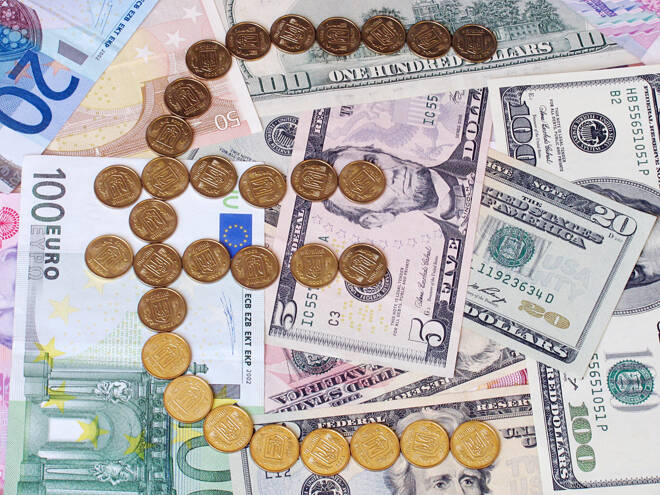Advertisement
Advertisement
Economic Data from France Disappoints ahead of a Busy U.S Session
By:
French economic data disappoints, pegging back the EUR from early highs.
After a relatively busy Asian session, on the economic data front, the French economy was in focus early in the European session.
2nd estimate GDP figures for the 4th quarter and consumer spending numbers for January were in focus.
Prelim inflation figures for February were also on the docket this morning.
French Stats Disappoint
In January, consumer spending slumped by 4.6%, month-on-month, partially reversing December’s 22.4% rebound. Economists had forecast a 3.5% decline.
According to Insee.fr,
- The consumption of manufactured goods tumbled by 12.9%.
- Durable goods purchases fell by 9.9%, with spending on clothing and textiles sliding by 27.8%.
- The 27.8% slide in spending on clothing and textiles left spending down by 14.4% year-on-year.
- Other manufactured goods purchases fell by a relatively more modest 7.7%.
- Energy consumption rose by 6.3%, however, with food consumption increasing by 1.7%. The upside in energy consumption was attributed to colder weather conditions.
4th quarter GDP numbers were also EUR negative. According to 2nd estimates, the economy contracted by 1.4%, quarter-on-quarter, revised down from a 1st estimate 1.3%.
According to Insee.fr,
- Gross disposable household income increased by 1.5%, in spite of the contraction in the French economy.
- The combined effect of the rise in purchasing power and drop in consumption expenditure (-5.4%) strongly increased households’ savings rate, which stood at 22.2%.
- In the 4th quarter, a 2nd national lockdown coupled with curfews weighed on the economy.
- In spite of this, the contraction was moderate compared with the 2nd quarter contraction stemming from the first lockdown.
- Gross fixed capital product rose by 1.1%, while total domestic demand hit reverse.
- Foreign trade continued to recover, with exports rising by more than imports, delivering a positive contribution to GDP.
Prelim inflation figures were not much better. In February, consumer prices fell by 0.1%, partially reversing a 0.2% rise from January.
According to Insee.fr, the annual rate of inflation softened from 0.6% to 0.4% mid-way through the quarter.
Market Impact
Ahead of the stats, the EUR had struck a current day high $1.21830 before falling to a pre-stat and current day low $1.21290.
Upon the release of the inflation figures, the EUR rose from $1.21346 to a post-stat high $1.21594 before easing back.
At the time of writing, the EUR was down by 0.12% to $1.21520.
For the European majors, there was no support from today’s stats.
At the time of writing, the DAX30 and the EuroStoxx600 were down by 0.87% and by 0.91% respectively. The CAC40 was down by 1.06%.
Next Up
A busy U.S session. Key stats from the U.S include inflation and personal spending figures that will draw plenty of attention.
About the Author
Bob Masonauthor
With over 28 years of experience in the financial industry, Bob has worked with various global rating agencies and multinational banks. Currently he is covering currencies, commodities, alternative asset classes and global equities, focusing mostly on European and Asian markets.
Advertisement
